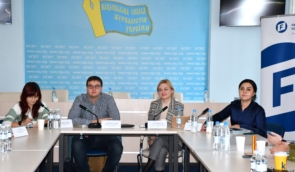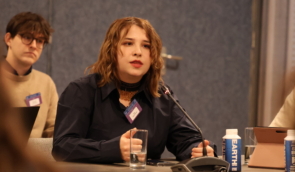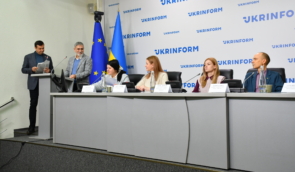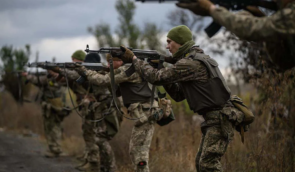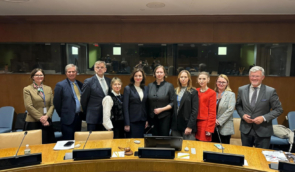Human rights defenders held an event for embassies on the new UN General Assembly resolution on human rights in Crimea
On November 16, 2021 pending the vote of the member states of the United Nations General Assembly ( the UN GA) on the new resolution on the situation of human rights in Crimea, Human Rights House-Crimea and its member organizations (Human Rights Centre ZMINA, Crimean Human Rights Group, Centre of Civic Education “Almenda”, Regional Centre for Human Rights) together with Human Rights Houses Foundation and the Ukrainian Helsinki Human Rights Union and met with the representatives of the diplomatic missions of the foreign states in Ukraine. The representatives of the embassies of the United States of Ukraine, the United Kingdom of Great Britain and Northern Ireland, the Federal Republic of Germany, Canada, the Kingdom of Spain, the Kingdom of Portugal, the Kingdom of Sweden and the Republic of Lithuania attended the advocacy event ‘Crimea Resolution 2021: a powerful tool to strengthen human rights protection in the peninsula’.
The human rights defenders informed the diplomats on the human rights violations in Crimea by presenting thematic units with the suggestions for the UN GA Resolution 2021 on the situation of human rights prepared by the member organizations of the HRH-Crimea.
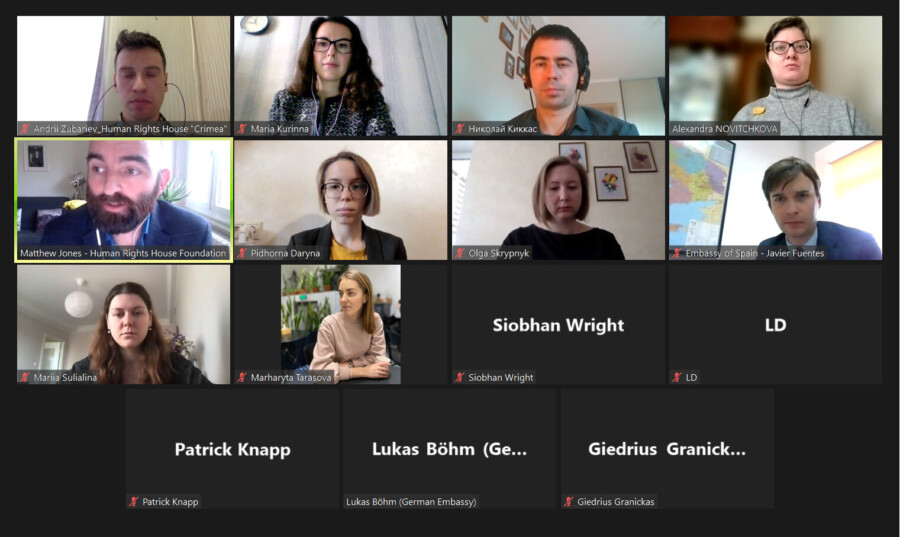
Maria Kurinna, the international advocacy officer of Human Rights Centre ZMINA, presented a thematic unit on the human rights violations in Crimea. She highlighted the issue of persecutions and detention of civic activists. She reminded about pressure on political prisoners, safety of the journalists and free press, and the persecution of lawyers who protect human rights defenders and activists.
Kurinna drew attention to the increasing pressure from the side of the occupying power and mass detention of the Crimean Tatar activists who are trying to follow the status of cases against their compatriots. She also reminded that 12 journalists were detained. There are Crimean Tatar citizen journalists among them. Citizen journalists had become the main source of information about the situation in the peninsula after the beginning of the occupation and the suppression of independent media in the occupied territory of Crimea.
’Crimean Solidarity’s’ citizen journalist Amet Suleymanov and three other Crimean Tatar political prisoners, Rustem Seitmemetov, brothers Osman and Seitumer Seitumerov, we recently sentenced. Together, the political prisoners received sentences of 54 years of imprisonment.
Maria Kurinna also informed of Nariman Dzelyal’s detention and involuntary placement in a psychiatric institution without the decision of the court. Nariman Dzelyal is the First Deputy Head of Mejlis of the Crimean Tatar People. Kurinna informed of the ongoing court cases against Asan Akhtemov, Aziz Akhtemov, Eldar Odamanov and Shevket Useinov. Vladyslav Yesypenko. Vladyslav Yesypenko is a Ukrainian freelance journalist of the Radio Free Europe/ Radio Liberty. He has been detained for about eight months. Yesypenko wrote a letter from the pre-trial detention center telling he had been tortured.
Kurinna additionally reminded about obstruction of the provision of legal aid to lawyers defending the rights of political prisoners. Lately a lawyer Edem Semedliaiev faced obstruction of provision jis duites and got detained and accused of an administrative violation for “failure to abide by lawful demand of a police officer. It is is a gross violation of international law.
ZMINA called on the representatives of the foreign states to condemn the actions of the Russian Federation against the illegal detention of the Ukrainian citizens in the occupied Crimea and to increase the pressure on the Russian government to secure the release of all political prisoners. ZMINA emphasized on the importance of ending the persecution of the Ukrainian citizens in the occupied peninsula.
Other speakers drew attention to such human rights violations by the Russian Federation as the militarization of education in Crimea, the attempts to prevent access of Crimean residents to the Ukrainian education system, the lack of access to education in their native languages (Ukrainian, Crimean Tatar), forced demographic change in the population of Crimea, expropriation and illegal destruction of the cultural heritage of Ukraine.
Representatives of the foreign diplomatic missions expressed their constant support in protecting human rights in Crimea and interest in various aspects of the issue. It was proposed to build strategic cooperation by joining forces in the systematic defense of human rights in the occupied Crimea. Further meetings with the representatives of the diplomatic missions are planned to be held.
If you have found a spelling error, please, notify us by selecting that text and pressing Ctrl+Enter.

